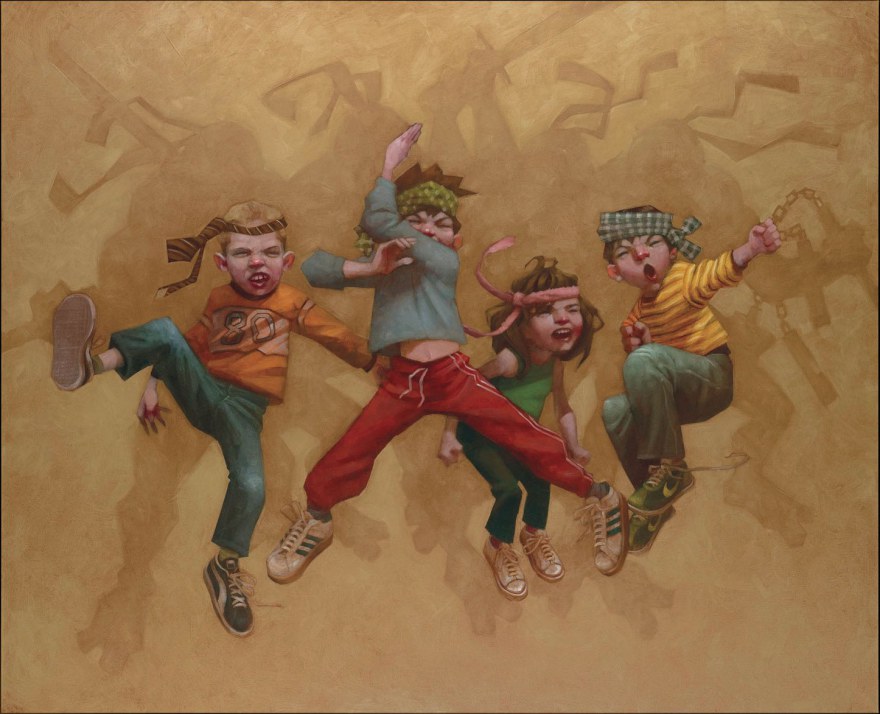 The following is an excerpt of Garden of Lamentations by Deborah Crombie, published by William Morrow, an imprint of HarperCollins Publishers, February 2017. Purchase a copy here. Catch Crombie on tour!
The following is an excerpt of Garden of Lamentations by Deborah Crombie, published by William Morrow, an imprint of HarperCollins Publishers, February 2017. Purchase a copy here. Catch Crombie on tour!

She stood at the bus stop, shuffling her feet. It had been twelve minutes, and still no bus. You’d think on bloody Kensington High Street on a Friday night, you could get a freaking bus. This sucked. Not to mention the creepy guy in the hoodie and earpods who kept glancing at her when he thought she wasn’t looking. She felt too exposed in her white, filmy spring dress, and she hadn’t even brought a cardigan to throw over her shoulders. What had she been thinking, wearing the damned thing? Well, she knew what she’d been thinking. It was a gorgeous night, unseasonably warm, and she’d thought things would turn out differently.
Deliberately, she turned her back on hoodie and checked her mobile. No text. No missed call. It seemed she’d been wrong.
And still no bus. Hoodie edged a little closer.
That did it. She’d walk round the corner into Kensington Church Street and catch the 52—that way she wouldn’t have to change at Notting Hill Gate. But it meant going back past the piano bar and she didn’t want to see them.
She hurried, looking back once to make sure hoodie hadn’t followed. When she passed the club, music came thumping through the open first-floor windows. She ducked her head, as if that would make her invisible. When she’d stormed out, she’d half hoped someone would follow, but now she didn’t want to talk to any of them. Not tonight. Maybe not ever.
And Hugo, she was finished with him for good, she really was. Just thinking about last night made her flush with shame. Feeling guilty about wanting to break things off, she’d slept with him again. And then, tonight, she’d found out what else he’d been up to. Jesus. Wanker.
Her sandals slapped on the pavement as she cut across the open forecourt of St. Mary Abbott’s church. It seemed dark and deserted with the flower stall closed, and she was glad to round the corner and climb the hill to the 52 stop.
The bus came trundling round the corner, squeaking and sighing to a stop, and she climbed on with relief. She sat downstairs—no way she was attempting the spiral stairs in the full-skirted dress. Settling into the seat, she looked away from her reflection in the glass, but not before she’d seen the dark hair curving against her cheek and the bare line of her neck. She shivered.
Back at the club, she’d taken one sip of the nasty drink the bartender had made her, then left it on some stranger’s table. Now she wished she’d held her nose and got it down. At least it might have made her sleep.
When the bus rattled to a stop at Elgin Crescent, she got out and walked the rest of the way. The gardens were dark, the streets quiet. The house, when she reached it, was dark, too, except for a faint glow from the lamp in the basement kitchen.
Taking her key from her bag, she paused for a moment on the step, suddenly reluctant to go in. She wished she had someone to talk to. Her mum, maybe, who would give her sensible advice. But her mum was miles away, and she couldn’t ask for her help. She’d promised not to tell anyone what she’d learned, and it was a promise she was bound to keep.
She’d been an idiot with Hugo. She could see that. She could also see that it didn’t matter in the long run. He was trivial, never more than a diversion, and her life would go on very much the same without him.
It was the other thing that was going to have consequences she hadn’t foreseen. Consequences that were going to change her life, one way or the other, whatever happened.
**
Jean Armitage never set an alarm clock. She had awakened at 5 a.m. every morning of her adult life, winter or summer, rain or shine. She took great pride in this. To her mind, people who weren’t ready to meet the day were lacking in fortitude.
When her husband, Harold, had been alive, she’d slipped carefully from the bed, tiptoeing to the bathroom to dress so as not to disturb him. A banker, he’d thought it uncivilized to rise before six. Now, she enjoyed the freedom of switching on the bedside lamp, of dressing as she pleased, of making the bed with boarding-school neatness before going downstairs. On this Saturday morning in May, she fluffed the pillows and gave the flower-patterned duvet cover a final, satisfied pat. Crossing to the window, she pulled open the curtains and stood for a moment, looking down into the communal garden. The sky was a clear, pale rose and the first rays of the sun were just gilding the tops of the trees.
Her pleasure was marred, however, by the sight of the half-finished extension jutting into the garden proper from the back of her neighbor’s house. Jean frowned and gave a tsk of disapproval. Just because the people had suffered a loss didn’t give them an excuse to encroach on community land. She’d complained to the Council, as had some of the other residents on the garden, but so far nothing had been done. Well, she’d never been one to back down from a challenge.
A few minutes later, armed with coffee, she let herself through the iron gate that separated her small private patio from the communal garden proper. In fine weather, she liked to stroll the path that wound round the garden’s perimeter, sipping her coffee and taking stock. The perfectly raked pea gravel crunched under her feet and she caught the heady scent of the blooming Cecile Brunner roses. Clive Glenn, the hired gardener, had surpassed himself this year. The hedges were immaculately clipped, the trees were in full leaf, and the late-spring flowers were bursting in full glory. Cornwall Gardens had never looked more beautiful, and she had no doubt it was the finest garden in Notting Hill.
Jean tugged her cardigan a bit more firmly over her shoulders as she walked. A slight chill lingered in the air, but the day promised to be warm and sunny. Perhaps it would give her a good chance to canvas some of the other residents for support.
She’d begun to formulate a plan when something caught her eye. Frowning, she stopped, gazing at the brilliant green swath of lawn that meandered through the garden’s center. The vista was marred by something white bundled under a plane tree in the heavily wooded area she thought of as the grove. Those bloody builders working on the extension, she thought, allowing herself a silent curse word, leaving rubbish where it could blow about.
Or had there been a burglary? she wondered, her heart quickening a little with alarm. Whatever the object was, it lay in the grass not far from the garden shed, and there had recently been a rash of break-ins in London’s communal garden sheds.
Any burglars would be long gone, she chided herself, leaving the path and setting off across the dew-damp grass with renewed purpose. But she slowed as she drew nearer. What had looked like a large white bundle of plastic or paper had begun to resolve itself into what looked disturbingly like a human shape. It was, Jean realized with a start, a woman. A young woman in a white dress, stretched out beneath the great branches of a plane tree.
She lay on her back, her face turned slightly away, but as Jean drew nearer she recognized her profile and the dark shoulder-length hair. It was the nanny from across the garden.
Incensed, Jean Armitage drew a breath, ready to scold as she charged forward with renewed purpose. What sort of a prank was this? Young people did anything these days. Sleeping in a private garden after a night on the town, she guessed. Such behavior was not to be tolerated in Cornwall Gardens, not among civilized people. She would have a thing or two to say to the girl’s employer when she’d got the young laggard up and about.
Suddenly, the sun climbed over the tips of the treetops, the light painting the green grass and the white dress with rippling, shifting dapples.
Jean stopped, her shoes squeaking on the wet grass. The heavy scent of the roses seemed suddenly cloying. Instinctively she put a hand to her breast. There was something not quite natural about the girl’s position. And she was still, so still. A sparrow swooped down, almost brushing the girl’s dark hair, and yet she did not stir. Any reprimand died unformed on Jean’s breath. She moved a step closer, then, slowly, another. And saw that the girl was not sleeping at all.
Advertisements Share this:




